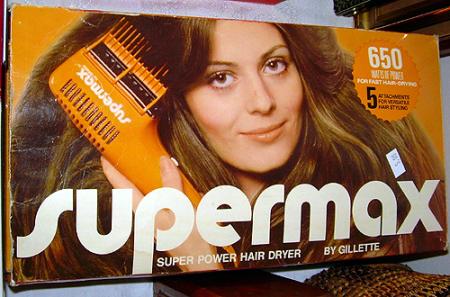Why Blogs Are Different
As much as I’d like to think that my blog is the same as a newspaper (or any other type of medium), it’s not. Blogging is young and still developing. That’s not to say that blogs aren’t as effective as the other media, it’s just that they are very different.
No One Kicks My Butt
Unlike newspapers, radio and television, there are no deadlines for blogs. There is no editor out there telling me to post a certain number of times a day. There are some blogs that DO impose posting requirements on their bloggers, but for most of them out there, the only deadlines are self-imposed.
That’s bad for you because bloggers aren’t desperate. They don’t have to put something up in a frantic attempt to fill time or keep the paper thick. If there is nothing good to write about, I don’t have to write today.
That means that if you want me to write about your product, it better be good.
My Blog Is Personal
There is no way that I’d be able to write the things that I write in a newspaper, for a television news station or even on a radio show. My blogs might talk about typical subjects like Health and Fitness or Gadgets, but they are always approached from the personal level. I write about how I liked a product or service. How they treated me personally.
That’s good for you because you will get a personal review from a blogger, which is FAR more powerful than the impersonal reviews from magazines and newspapers. When your customers read a review from a blogger, they will be able to relate to it more.
Of course, this is also bad for you because if your product is inferior, a blogger will have no compunction to tell the world about it. Whatever you’re pitching better be something worth talking about.
I Don’t Have The Luxury of an Editor
Bloggers write without a safety net. There’s no one else out there catching our spelling or grammar errors. There’s not even anyone to prevent us from writing about your product with profane language.
If you want to have a blogger review your product, make sure that you choose a writer that meets your standards. Read a few of their posts to make sure that they are going to present the image that you require for your product.
How To Pitch to Bloggers
I can’t really speak for anyone else, but here is how I would like to be pitched to:
Press Releases Are Useless
Because newspapers, magazines, television and radio are all on deadlines, press releases work really well for them. When they are pressed for time, they can take your press release and regurgitate it verbatim. It helps them meet their ever-looming deadlines with little effort on their part since you took all the effort writing them in the first place.
For a blogger, however, press releases are useless. I don’t have a deadline looming over my head, so I’m not desperate. I don’t need to cut and paste your press release into my blog because there is no one forcing me to write.
Additionally, spewing press releases actually HURTS my blog. The search engines (like Google), notice if I am posting unoriginal material, such as press releases, and I am penalized for it. Posting a press release verbatim is search engine suicide for me.
Keep Your Friends Close
If Google and their search engine practices are a disadvantage to you, they can also be your secret weapon. The Chinese military strategist, Sun-tzu, said, “Keep your friends close and your enemies closer.†This is a highly effective method for pitching to bloggers.
Using Google, find your “friends.†These are bloggers who love your product. Without pitching to them at all, they have been out there talking up a storm about how great your product is. They are an incredible asset to you and they really deserve to be thanked.
For example, if you were asked to pitch the newest Nike+ gadget, type the phrase, “I love Nike+†into a Google search. If you do this, you will find a number of articulate bloggers who just rave about the product. Go to their site, thank them for the coverage and ask if they want to review the newest product in the same line.
Keep Your Enemies Closer
The second half of that famous quote is even more important. If you can find the bloggers who are talking smack about your product line and turn them around, then you have a RABID fan, who will gladly give you good reviews for years.
You use Google to find your enemies the same way as you find your friends. Search using the phrase, “I hate [your product or brand]†and your sworn enemies will rise to the top. How you treat them is a little different, however.
Only Deal With Things In Your Control
In that previous example for Nike+, if you type the phrase, “I hate Nike+†into Google, the first blog entry complains about the fact that the battery in the Nike+ is not replaceable.
If you know the official spin from Nike regarding this issue and can address it, then you might be able to turn this enemy into a rabid fan. If you don’t, however, you will make things worse.
Only try to turn angry bloggers with issues that you can control. Nike’s slow and cumbersome website is not an issue that you can solve, but if you could get a replacement sensor for the blogger whose battery went dead, then you’ve got a friend for life.
Review Copies Are Worth More Than Gold
Bloggers write on their own dime. Most of the time they review products that they have paid for with their own hard-earned money. If you can provide a review copy of your product, that almost guarantees that you’ll get a review.
I can’t speak for all bloggers, but I prefer a review copy with a time deadline. I prefer a company to say that I will have the product for two weeks and a UPS sticker to send it back to them when it’s all done. Bloggers might have a reputation for wanting free stuff, but you’ll get faster and more honest reviews if you don’t give them the item for free. You can even put your favorite bloggers on a schedule and pass the review copy around to them in sequence.
Be Prepared For The Truth
The scariest aspect of dealing with bloggers is that they are shockingly willing to tell the truth. If your product is sub-par, difficult to use, or a problem in any way, they are perfectly willing to tell the world about it. That’s why readers trust them.
If you are going to pitch to bloggers, you MUST be prepared for the truth. It is very easy to botch this and several companies have done just that. After a particularly bad email pitch to a prominent blogger, Biro, MWW Group’s director of new media strategies, sent out this to the firm:
In light of an unfortunate situation that occurred with a blog pitch gone bad, now is a good time to reiterate some best practice guidelines for engaging with bloggers.
- Don’t pitch, talk: Bloggers are for the most part well-versed in PR spin and hyperbole and react poorly to it. Help the writer do a better job.
- “A-List” blogs that consistently receive attention. It’s a better tactic to find someone smaller interested in the “pitch.” A worth story will find its way up.
- Use links.
- Be brief.
- Don’t send attachments.
- Make sure you’re not asking for coverage you’ve already gotten.
- Make sure you’re not asking for coverage someplace that just trashed your client.
- Rushing through outreach efforts – to traditional media or online media – is no excuse for being sloppy. If something doesn’t look right ask for help.
For me, the most important on their list is “Make sure you’re not asking for coverage you’ve already gotten.†There are so many times when I’ve received a press release for a product I’ve already reviewed. Whether I gave them a good review or a bad review, it makes me mad because they didn’t notice. That’s why I highly recommend using Google to your advantage and finding your friends and enemies before you approach them.
Read More About This on the Internet
Here are some links to other bloggers who have talked about this subject:
Update 06-09-08: Tom Pick had a couple of good PR pitches that he received:










